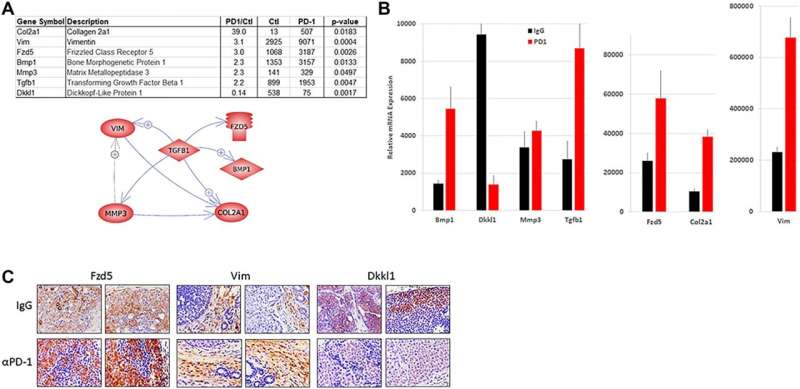This article has been reviewed according to Science X's editorial process and policies. Editors have highlighted the following attributes while ensuring the content's credibility:
fact-checked
peer-reviewed publication
proofread
Resistance of mammary fibrosis to immune checkpoint therapy linked to macrophage infiltration, Wnt pathway expression

A new research paper titled "Resistance of MMTV-NeuT/ATTAC mice to anti-PD-1 immune checkpoint therapy is associated with macrophage infiltration and Wnt pathway expression" has been published in Oncotarget.
One of the central challenges for cancer therapy is the identification of factors in the tumor microenvironment that increase tumor progression and immune tolerance. In breast cancer, fibrosis is a histopathologic criterion for invasive cancer and poor survival that results from inflammatory factors and remodeling of the extracellular matrix to produce an immune tolerant microenvironment.
In this new study, researchers from Georgetown University Medical Center, Merck Research Institute and Bicycle Therapeutics aimed to determine whether tolerance is associated with the immune checkpoint, Programmed Cell Death 1 (PD-1). A conditional model of mammary fibrosis recently developed by this team, NeuT/ATTAC mice, were administered a murine-specific anti-PD-1 mAb related to pembrolizumab. The researchers monitored drug response by tumor development, imaging mass cytometry, immunohistochemistry, and tumor gene expression by RNAseq.
"Utilizing this more stringent tumor model to test its susceptibility to anti-PD-1 immunotherapy, we report the signaling processes associated with its lack of responsiveness," the researchers write.
Tumor progression in NeuT/ATTAC mice was unaffected by weekly injection of anti-PD-1 over four months. Insensitivity to anti-PD-1 was associated with several processes, including increased tumor-associated macrophages (TAM), epithelial to mesenchymal transition (EMT), fibroblast proliferation, an enhanced extracellular matrix and the Wnt signaling pathway, including increased expression of Fzd5, Wnt5a, Vimentin, Mmp3, Col2a1, and Tgfβ1. These results suggest potential therapeutic avenues that may enhance PD-1 immune checkpoint sensitivity, including the use of tumor microenvironment targeted agents and Wnt pathway inhibitors.
"Overall, the immune tolerant TME in NeuT/ATTAC mice was associated with tumor-infiltrating macrophages, Foxp3+/PD-1- Treg cells as well as upregulation of the Wnt signaling pathway, which may provide further insights into the therapeutic options that may enhance immune checkpoint therapy," the researchers conclude.
More information: Hongyan Yuan et al, Resistance of MMTV-NeuT/ATTAC mice to anti-PD-1 immune checkpoint therapy is associated with macrophage infiltration and Wnt pathway expression, Oncotarget (2022). DOI: 10.18632/oncotarget.28330




















